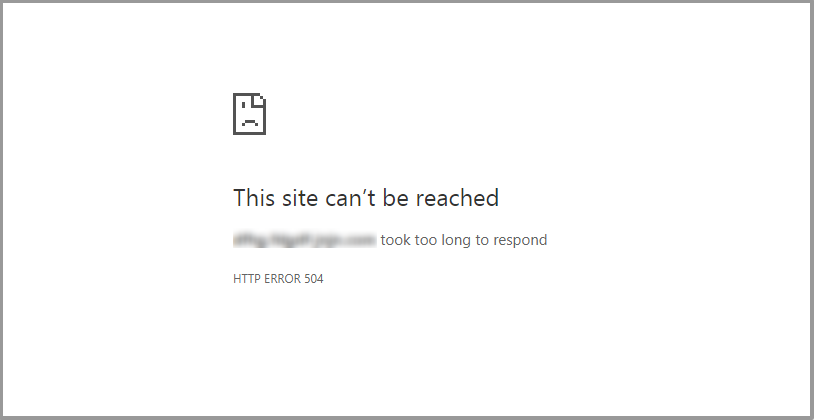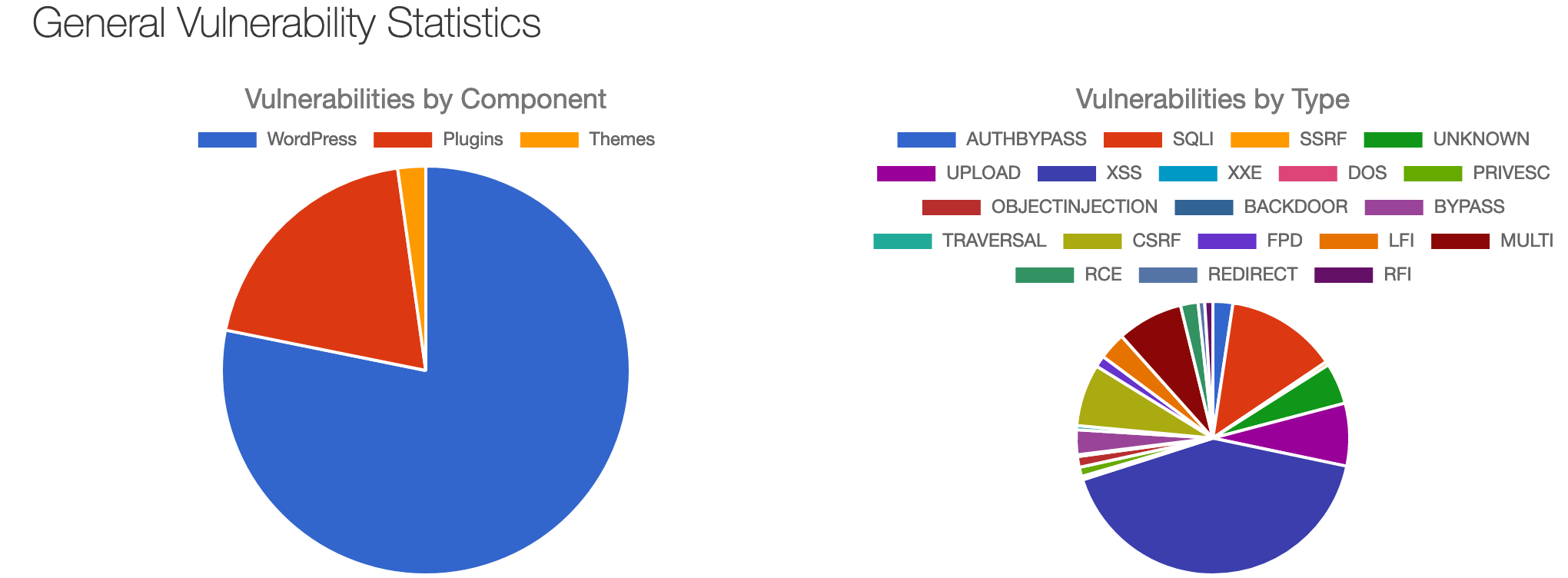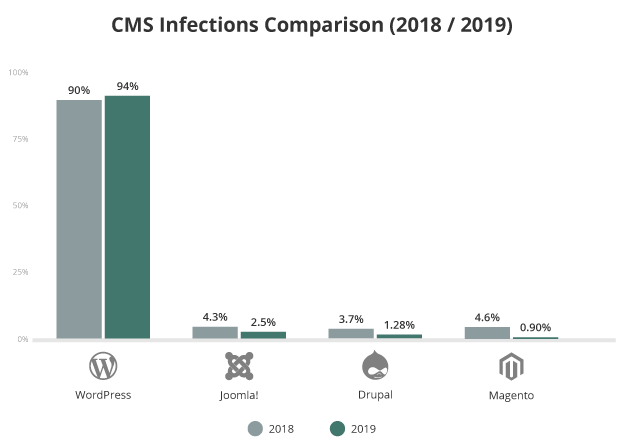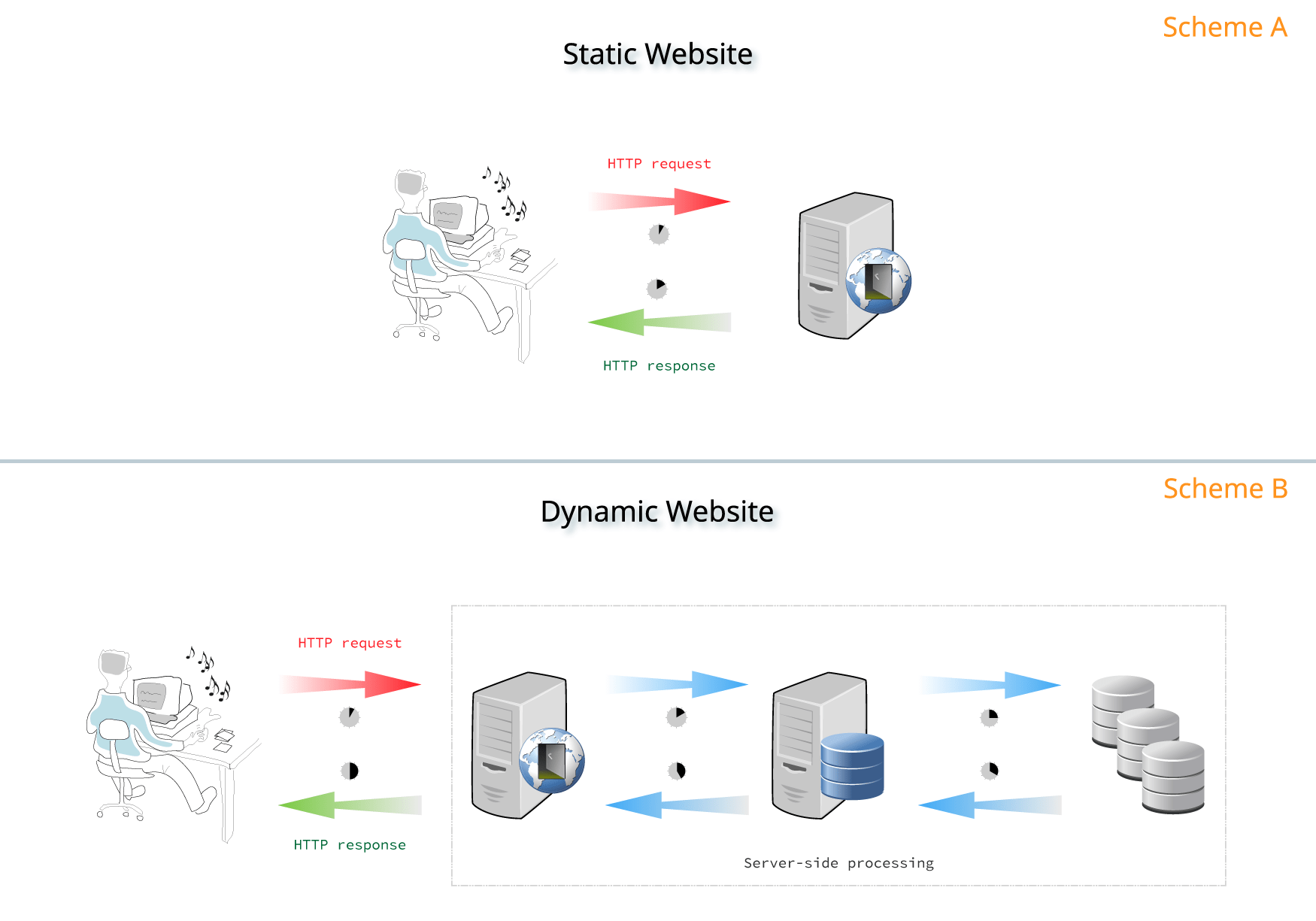Published: Feb 29, 2020 by Tariq Hawis
Wordpress is the most famous CMS platform that is used to build websites for years. Yet, after the new w3 standards, Google SEO, and the emerge of cyber threats. This platform has has shown inability to catch up.
What makes WordPress the most preferable CMS for the vast majority of website owners is for the considerable community that behind it; WP’s empowered by millions of people with plugins & themes of all kind and shapes that available for free to download, and for all tips & tricks that needed for better blogging experience. It’s nearly impossible that there’s a problem with WP and it has no solution exist on the Internet. Heck, even there are companies who especially dedicated for WP as you’ll find who offer premium plugins, themes, or manage services.
All these advantages are true, but it’s unfortunately the half of the truth.
Here are the other true facts.
Fact No.1 .. WordPress is Slow
Since WordPress is built on dynamic pages, the type that is built with a server-side program language, which for WP case is PHP. The main disadvantage for a dynamic website is the fact that it will rely on server resources to process the operations inside the pages. And imagine that each page will be processed each time it is requested by a visitor to the page. That will eventually lead to slowness issues, and sometimes to crash the website entirely.

You may not face that at the early stages of your website, but later when you got more recognized and start having decent traffic, you will start suffering slowness or even crash problematic. At this stage, you’ll start looking for a more expensive hosting provider, add CDN, premium lightweight themes, premium boost plugins, and maybe pay for special service to an engineer or a company to solve your website’s problem.
Now imagine how much time and money you’ll waste on a website that is supposed to bring profit instead of drains your pocket!
Fact No.2 .. WordPress is attractive to Hackers!
If there is software that is mentioned the most inside the hackers’ community it should be WordPress. That is because of the huge list of vulnerabilities that discovered already and still increasing. Which makes it a perfect choice to be used as a lab rat by hackers during their tutorials!
WordPress is a Main Target
If you search in the vulnerability databases like CVE or WPScan, you may find that WP has a scary number of vulnerabilities that are disclosed to the public.
Why WordPress?
For two reasons.
1. Tremendous Number of Plugins
To date, The last count from WordPress plugins page says 55,791 free plugins available to download. That’s enough number to motivate bug hunters to start to install and analyze plugins until finding a security bug. As a result of the large-scale bugs hunting around the world against WP Plugins, there are thousands of discovered vulnerabilities disclosed to the Internet in several online vulnerability databases; such as CVE and wpvulndb.com, the last one alone recorded so far 3858 of unique vulnerabilities in their database; that includes findings in WP core, plugins, and themes. Now, this is a big figure, and it makes WP the top CMS with disclosed vulnerabilities.

2. It’s the Most Popular CMS
Hackers don’t like wasting their valuable time finding vulnerabilities on some random applications on the Internet, especially when they work for big teams with the big plan; A plan like infecting as many devices on the internet as they can; including, Personal Computers, Smart Phones, Internet Servers, IoT…and so on.
That said since WP is the most popular CMS with 35% of all the websites on the Internet using it –according to W3techs- and for the huge number of disclosed vulnerabilities that have already been disclosed, it’s sensible that they choose this particular CMS to focus on.

The concept used by hackers to infect devices is simple. They create automated scripts -can be available for free also!- which scan millions of websites for known vulnerabilities throughout the web. When a scan identifies a target, the exploit delivers its payload to obtain access to the environment and deploy other malicious tools, later, this infected machine will be used as a botnet to scan other devices worldwide, and the ball keeps rolling.
What are the Alternative Solutions?
As a pentester who used to hunt bugs, I can tell you that using WP as an engine for your website will bring pain in the head and a time/money waster, as long the solution to overcome slowness or security threats will require paying a lot of money on expensive hosting, CDN services with WAF enabled. Not to mention the need to watch out daily and regularly the updates of your CMS and its plugins, and monitor attack attempts that come to your website. That all will be enough to move away from your business core value.
Fortunately, there are modern platforms that came up lately which become over time the best alternatives for old fashion platforms, those platforms called Static Site Generator “SSG”
While in dynamic-sites fashion, website pages are delivered on-demand to the visitors, which unnecessarily consumes the server’s resources. The SSG-based website generates all the pages of the website once when there are changes to the site. This means there are no moving parts in the deployed website. Caching gets much easier, performance goes up and static sites are far more secure.

If you want to know more about SSGs and how to build one, check out my other post How to Launch a Secure Website in 2020
Should you have questions or suggestions about this topic, please reach out on Twitter, or leave me a comment below.
Share